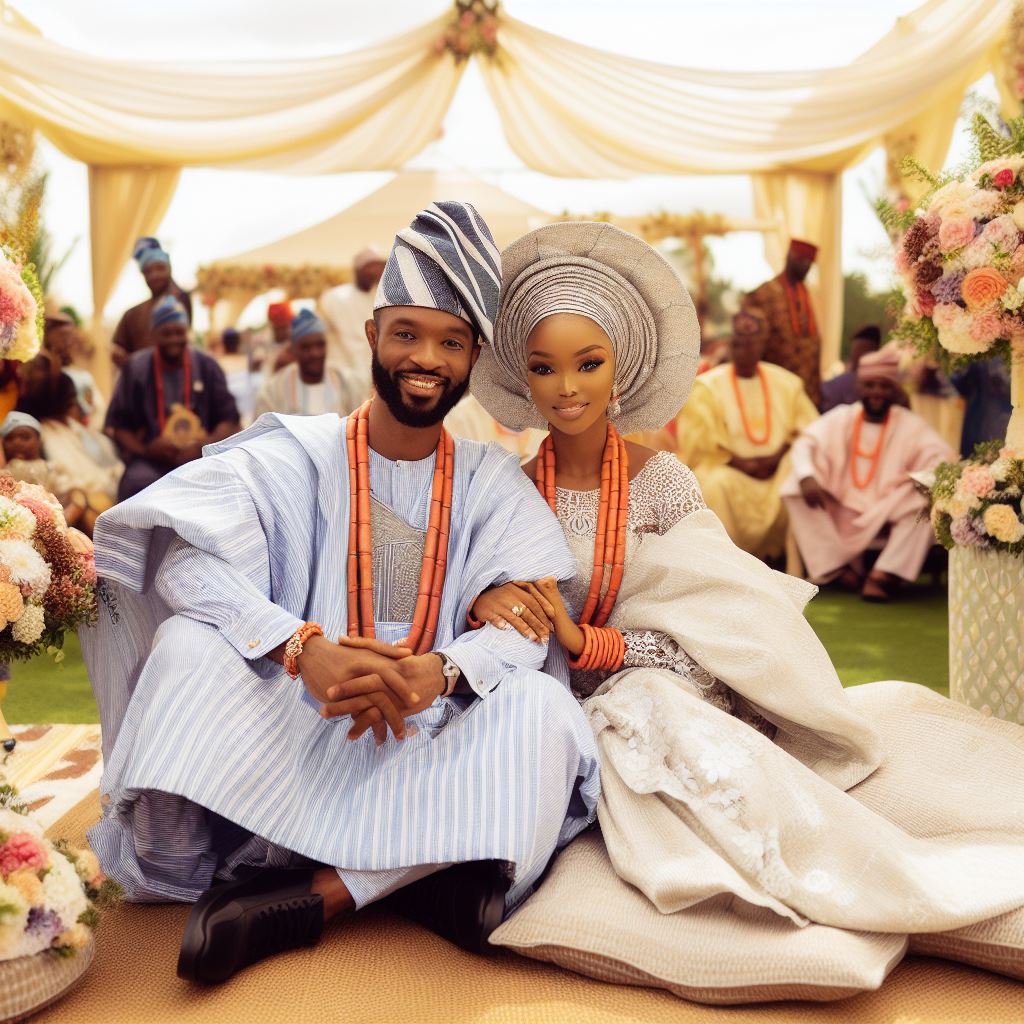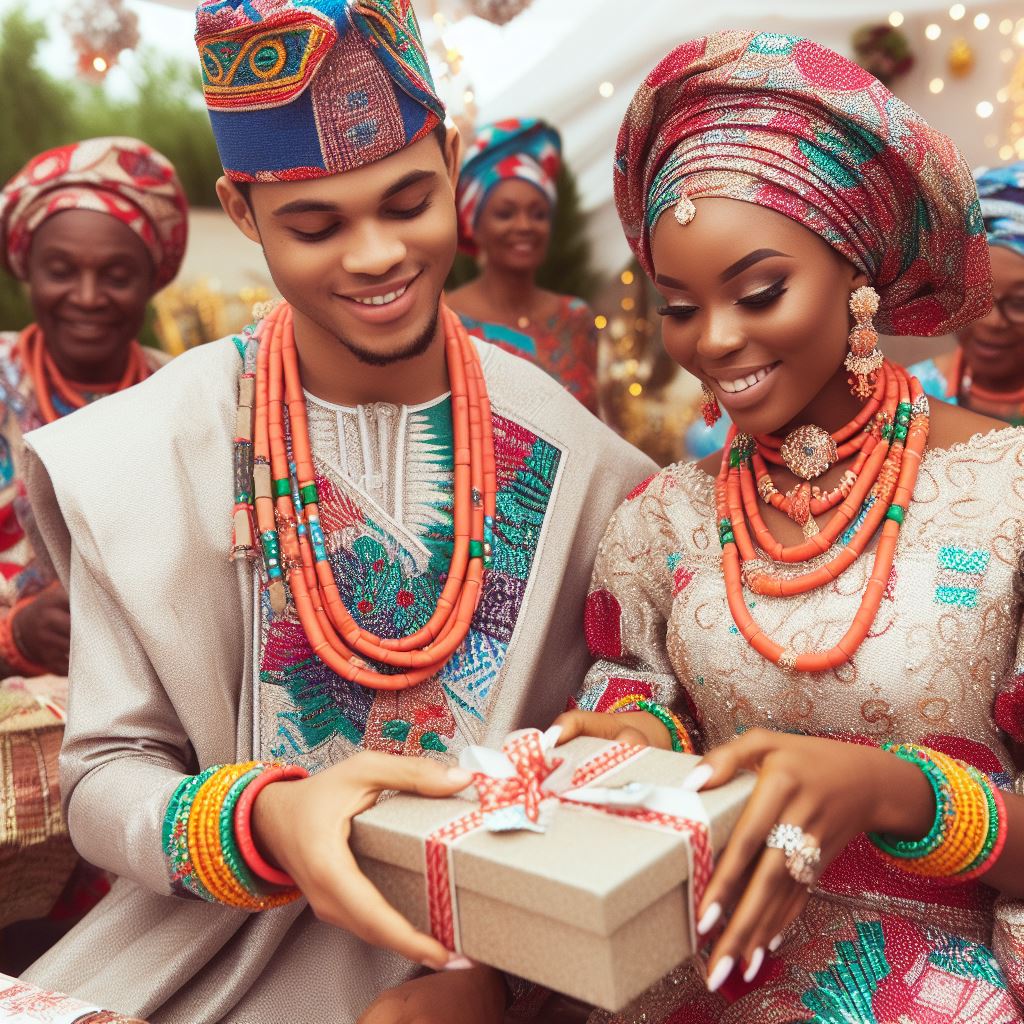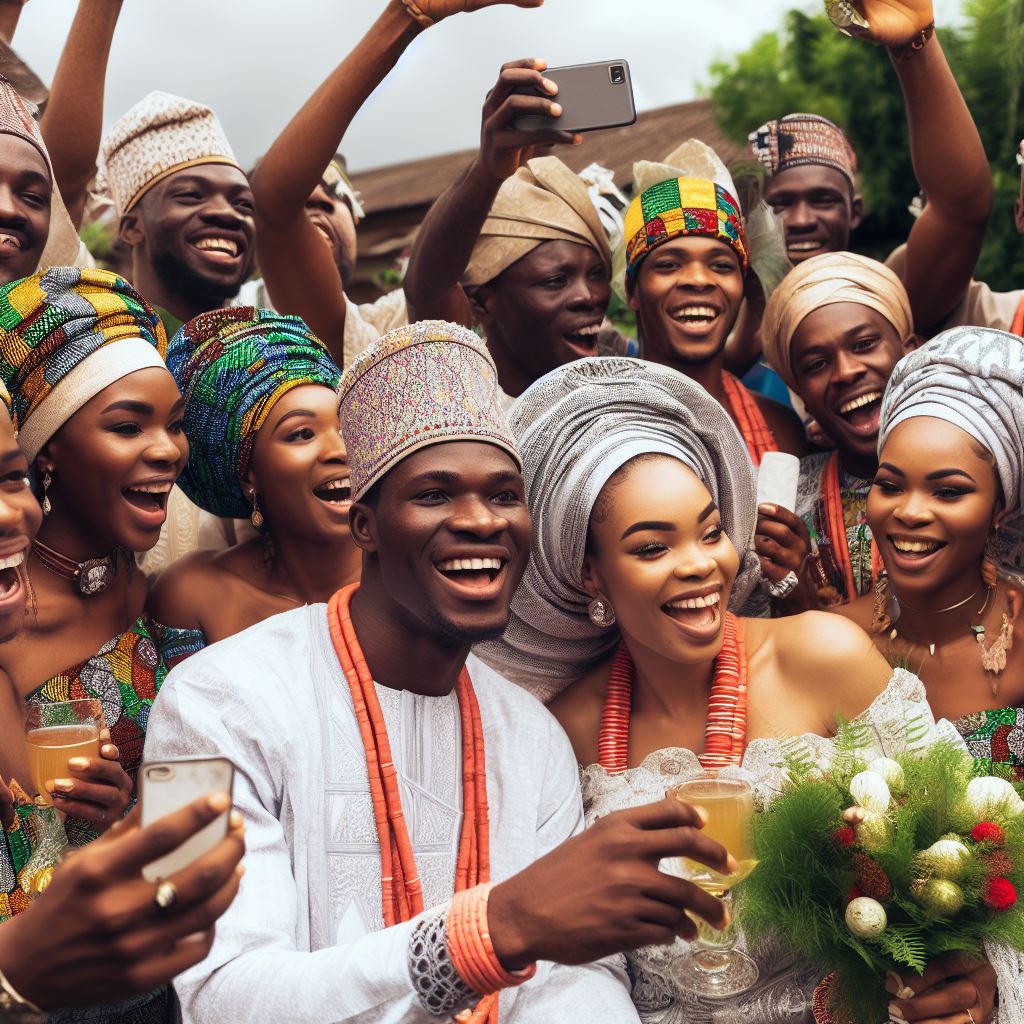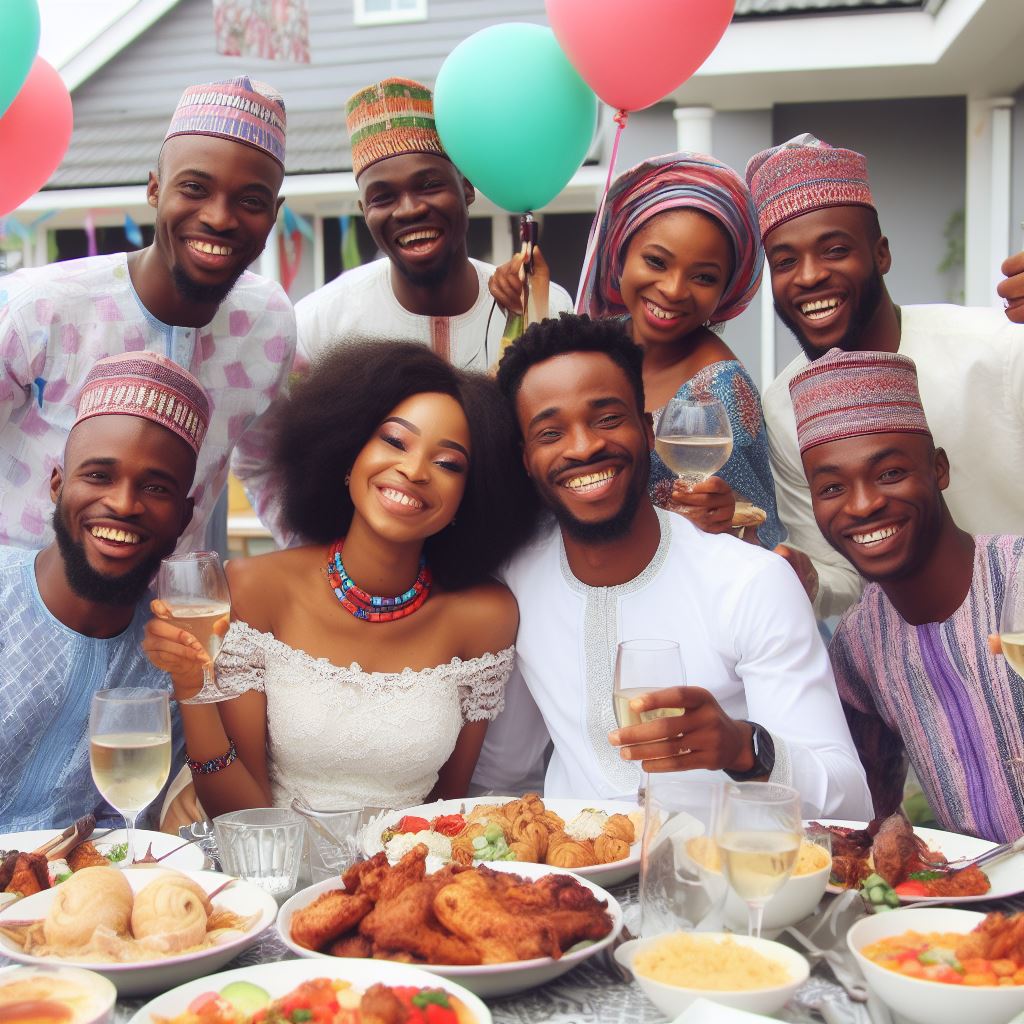Introduction
Religion is deeply ingrained in the cultural fabric of Nigeria, influencing morality, conduct, and various aspects of life, including marriage.
For Nigerians, marriage is not only a legal and societal union but also a sacred institution guided by religious beliefs and practices.
Nigerian pastors, as influential figures in their communities, play a crucial role in shaping people’s perspectives on marriage.
As faith leaders, Nigerian pastors often provide guidance, advice, and teachings on how to have a successful and fulfilling marriage based on their interpretation of religious scriptures.
These pastors’ quotes on marriage offer insights into the expectations, responsibilities, and challenges faced by couples in Nigerian society.
While their opinions and interpretations may vary, common themes emerge, such as the importance of commitment, faithfulness, communication, and mutual respect in a marital relationship.
Furthermore, many Nigerian pastors emphasize the need for couples to seek divine guidance, pray together, and build their marriages on the foundation of their shared faith.
Understanding Nigerian pastors’ perspectives on marriage provides valuable insight into the influence of religion on marital relationships in Nigerian society.
By examining their quotes, we can gain a deeper understanding of the values and beliefs that shape the institution of marriage within the context of Nigerian culture.
Read: Building Financial Synergy in Nigerian Marital Homes
Role of Religion in Nigerian Marriages
Influence of religious beliefs on marital norms and values
- Religious beliefs play a significant role in shaping the norms and values surrounding marriage.
- Nigeria is a country deeply rooted in religious traditions, with Christianity and Islam being the predominant religions.
- Both religions emphasize the importance of marriage as a sacred union blessed by God.
- Traditional beliefs and customs also influence Nigerian marriages, with many couples incorporating cultural practices into their wedding ceremonies.
- Religious teachings emphasize the values of commitment, fidelity, and mutual respect, which are essential for a successful marriage.
- For example, Christianity teaches that marriage is a lifelong commitment and divorce is strongly discouraged.
- Islam, on the other hand, allows for polygamy but emphasizes the importance of treating all wives equally.
- Religious beliefs also shape gender roles within marriages, with many Nigerian couples adhering to traditional gender norms.
- These beliefs often place men as the head of the household and promote male authority and leadership within the family.
Religious ceremonies and rituals
- Religious ceremonies and rituals play a crucial role in Nigerian weddings, as they symbolize the couple’s commitment and seek divine blessings.
- In Christianity, couples often have a church wedding officiated by a pastor, with the exchange of vows and rings being central elements.
- Traditional cultural practices, such as the payment of dowry and traditional attire, are also integrated into Christian weddings.
- Islamic weddings, known as Nikah, involve the couple and their families coming together for a formal marriage contract.
- A religious leader, usually an Imam, performs the ceremony, which includes recitation from the Quran and the signing of the marriage contract.
- Traditional Nigerian marriages, irrespective of religion, involve customs such as the traditional engagement ceremony and the breaking of kola nuts for blessings.
Religious leaders’ role in shaping marital mindset
- Religious leaders hold significant influence over their congregations and play a vital role in shaping the mindset of married individuals.
- They provide guidance and counseling on marital issues, focusing on the importance of love, forgiveness, and communication.
- Through sermons and teachings, religious leaders emphasize the sanctity of marriage and encourage couples to seek spiritual guidance and support.
- They also address common challenges faced in marriages, such as infidelity, financial struggles, and conflicts, offering advice on how to overcome them.
- Religious leaders often mediate marital disputes, promoting reconciliation and unity within families.
- They stress the importance of prayer and spiritual practices in maintaining a strong and lasting marital bond.
- Moreover, religious leaders often organize marriage retreats and seminars to provide couples with tools and resources for a healthy and fulfilling marriage.
- Their teachings on family planning and responsible parenthood also influence the reproductive decisions of couples.
- Overall, religious leaders play a significant role in shaping the mindset, values, and practices of Nigerian couples in their marriages.
Religion holds immense importance in Nigerian marriages. It influences marital norms and values, dictates the ceremonies and rituals conducted during weddings, and shapes the mindset of married individuals.
Religious beliefs emphasize commitment, fidelity, and mutual respect.
Religious leaders provide guidance, support, and mediation, ensuring the stability and success of marriages.
Nigerian couples, regardless of religion, continue to embrace and value the role of religion in their marital journey.
Read: The Influence of Religion on Marriage Life in Nigeria
Quotes from Nigerian Pastors on Marriage
Pastor Adeboye’s Views on Marriage
Pastor Enoch Adeboye, the General Overseer of the Redeemed Christian Church of God (RCCG), emphasizes the importance of submission in marriage.
According to him, wives should submit to their husbands as a sign of respect and obedience.
Adeboye advocates for a balanced power dynamic in marriages where women willingly submit and support their husband’s leadership while husbands love and cherish their wives.
Additionally, he emphasizes the significance of love and respect within a marriage. Adeboye believes that mutual respect and genuine love are vital for maintaining a strong and lasting relationship.
According to him, couples should always strive to make their partners feel valued and appreciated.
Furthermore, Pastor Adeboye offers guidance on family planning within marriage.
He emphasizes the importance of responsible decision-making, encouraging couples to consider their financial stability, emotional readiness, and spiritual preparedness before expanding their families.
Adeboye believes that family planning allows couples to responsibly bring children into the world, ensuring they receive adequate care and attention.
Bishop David Oyedepo’s Perspective on Marriage
Bishop David Oyedepo, the founder and presiding bishop of Living Faith Church Worldwide, also known as Winners’ Chapel, strongly opposes divorce.
He believes that a marriage should endure through thick and thin, and couples should work towards resolving their issues rather than seeking separation.
According to Oyedepo, divorce should never be an option for those who value the sanctity of marriage.
In addition, Bishop Oyedepo encourages couples to submit to God’s authority in their marriage.
He emphasizes the significance of faith and spiritual growth within the marital union.
According to him, couples who prioritize their relationship with God experience a more profound connection with each other.
Oyedepo believes that spiritual growth strengthens the bond between spouses, allowing them to overcome challenges together.
Pastor Chris Oyakhilome’s Teachings on Marriage:
Pastor Chris Oyakhilome, the founder of Believers’ Loveworld Incorporated, also known as Christ Embassy, shares the importance of mutual respect, love, and unity in marriage.
He highlights the essential role these elements play in fostering a healthy and successful relationship.
According to Oyakhilome, couples should treat each other with respect, communicate effectively, and work together to achieve common goals.
Moreover, Pastor Chris highlights the impact of negative words on marital relationships.
He encourages couples to be mindful of their speech, emphasizing the need for uplifting and encouraging words.
Oyakhilome believes that positive communication enhances trust, intimacy, and overall satisfaction in a marriage.
Lastly, Pastor Chris provides guidance on handling conflicts and maintaining peace within the marriage.
He advises couples to address issues promptly and resolve conflicts through open communication and understanding.
Oyakhilome emphasizes the importance of forgiveness and encourages couples to let go of grudges and work towards reconciliation.
Nigerian pastors play a significant role in shaping the perspectives and behaviors surrounding marriage in the Nigerian society.
Their teachings on submission, love, respect, family planning, and conflict resolution influence individuals and couples striving to build strong and fulfilling marriages.
By adhering to the wisdom and guidance provided by these pastors, Nigerian couples can cultivate healthier relationships and foster a harmonious society.
Read: A Guide: Writing Your Vows for a Nigerian Wedding

Controversial Quotes and Criticisms
Criticism of some pastors’ views on gender roles and submission
- Nigerian pastors have been criticized for promoting outdated gender roles and emphasizing female submission in marriages.
- Critics argue that this perpetuates inequality and oppression, disregarding women’s rights and autonomy.
- Some pastors’ teachings suggest that women should always defer to their husbands’ decisions, even in matters of personal choice.
- This approach has drawn backlash from both feminists and progressive religious individuals who advocate for mutual respect and partnership in marriages.
- Critics argue that such teachings undermine women’s agency and limit their ability to make independent decisions.
Controversial statements regarding divorce and abusive relationships
- Nigerian pastors have also faced criticism for their controversial remarks concerning divorce and abusive relationships.
- Some pastors have been accused of advising women to endure abusive marriages, believing that divorce is never an option.
- This viewpoint is highly problematic as it ignores the physical and emotional harm inflicted on individuals in abusive relationships.
- Critics argue that pastors should prioritize the safety and well-being of individuals over preserving the institution of marriage.
- It is crucial to encourage individuals in abusive relationships to seek help, leave the harmful situation, and prioritize their own self-care.
Discussion of criticisms and counter-arguments
- Despite these criticisms, some pastors defend their views by citing biblical teachings and interpreting them in a traditional way.
- They argue that gender roles and submission are necessary for maintaining a stable and harmonious marriage.
- These pastors may argue that their teachings are in line with biblical scriptures, which they consider the ultimate authority.
- However, critics argue that interpretation of religious texts should evolve with societal changes and changing understanding of gender roles.
- They assert that religion should not be used as a tool to perpetuate discrimination or suppress women’s rights.
- It is important to have open and respectful dialogue between pastors and critics to foster understanding and promote equal rights within marriage.
- Some progressive pastors have acknowledged the need for reevaluating certain teachings, recognizing the importance of mutual respect and equality.
- These pastors advocate for shared decision-making and encourage healthy partnerships based on love and respect.
- Critics appreciate the efforts of these progressive pastors in challenging oppressive views and promoting more inclusive interpretations of religious teachings.
The quotes and views expressed by Nigerian pastors on marriage have been the subject of criticism and controversy.
Some pastors’ emphasis on traditional gender roles and female submission in marriages have drawn backlash for perpetuating inequality.
Likewise, controversial statements regarding divorce and abusive relationships have been met with criticism for prioritizing the preservation of marriage over individual safety.
Despite these criticisms, there are pastors who acknowledge the need for reevaluating teachings and promoting equal partnerships based on respect and love.
Open dialogue and a willingness to challenge oppressive views are essential for the evolution of religious interpretations and the promotion of gender equality within marriages.
Read: Modern Nigerian Couples: Changing Face of Vows
Discover More: How to Write Hausa-Inspired Wedding Congrats
Conclusion
Recap of the significance of religion in Nigerian marriages
Religion plays a significant role in Nigerian marriages, shaping their values, beliefs, and practices.
The diversity of Nigerian pastors’ perspectives on marriage
Nigerian pastors offer diverse views on marriage, reflecting the cultural, social, and religious complexities in Nigeria.
Encouragement to seek personal understanding and interpretation of religious teachings on marriage
It is important for individuals to personally engage with religious teachings, seeking understanding and interpretation in the context of their own lives.
Nigerian pastors’ quotes on marriage highlight the profound impact of religion in Nigerian marriages.
The diversity of perspectives underscores the complex nature of marriage and the need for personal engagement with religious teachings.
Ultimately, it is up to individuals to seek their own understanding and interpretation of these teachings in order to build strong and fulfilling marriages based on their own beliefs and values.




